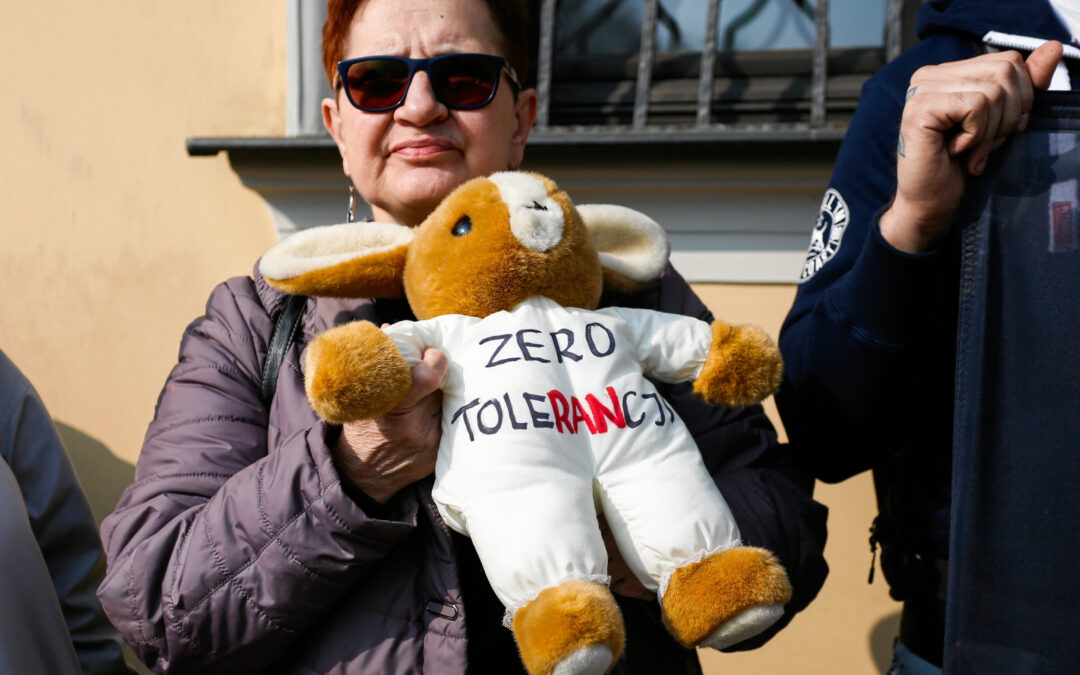Poland’s lower house of parliament has approved a bill aiming to make a state commission investigating sex crimes against minors more effective by giving it easier access to information and documents.
The head of the commission has previously criticised the Catholic church for making it impossible to access certain material. However, the Catholic hierarchy has argued that Poland’s concordat with the Vatican and church law limit the extent to which it can cooperate with investigations.
The bill was backed on Wednesday by 445 members of the 460-seat Sejm. It was a relatively rare show of cross-party agreement in the more powerful of Poland’s two parliamentary chambers. No one voted against the measures, and only one deputy abstained.
The bill now goes to the upper-house Senate, which can delay its progress but not block it. Once it is approved by parliament it passes to the president, Andrzej Duda, for approval. It was Duda who originally proposed the legislation.
The state commission for investigating cases of sexual abuse against minors began work in 2020, following a growing number of historical crimes coming to light, in particular in the Catholic church. It published its first report last year.
In cases examined by the committee in which the perpetrators were unrelated to the victims, around half of the perpetrators were members of the clergy. However, the head of the commission, Błażej Kmieciak, has complained that “the church puts up an incomprehensible barrier” to access certain documents.
“At the stage of preparatory proceedings in Poland, it is possible to obtain certain information, but when the case is [then] dealt with by the Vatican, there is no possibility of accessing these documents,” he said in August, quoted by Gazeta Wyborcza. He also noted that many documents are destroyed by the church after ten years.
The Polish Episcopal Conference (KEP), the central organ of the Catholic church in Poland, submitted its own opinion to parliament on the proposed legislation.
“Regardless of the goodwill on the part of the Polish Episcopal Conference to cooperate with the commission as intensively and transparently as possible, certain legal conditions made it impossible to meet the expectations of the commission,” it argued.
The KEP noted that some of its information and documents “are covered by professional secrecy under canon [church] law” and that “their disclosure is contrary to the code of canon law”.
“If there is a contradiction between the provisions of the concordat [Poland’s agreement with the Vatican] and a [secular] law, the priority of the concordat over the law should be recognised,” it concluded.
Sejm pracuje nad ustawą, która pozwoli skuteczniej ścigać pedofilów w tym tych w sutannach. Episkopat nadal chce bronić „swoich” pedofilów. Już zapowiada, że skoro jego zdaniem Konkordat jest ważniejszy od ustawy, to nie będzie musiał ujawniać danych. https://t.co/TOjPfWqhuV
— Wanda Nowicka (@WandaNowicka) November 16, 2022
The proposed new law was put forward by Duda in cooperation with the commission itself, which has said it needs more powers. The president proposed introducing court-imposed fines of up to 3,000 zloty for anyone failing to provide documents demanded by the commission.
However, when the final version of the bill was approved by the Sejm yesterday, the part introducing such fines had been removed, reports TVN24. The amendment that did so was supported by the ruling national-conservative Law and Justice (PiS) party but also a handful of opposition MPs.
Kamila Gasiuk-Pihowicz, a lawmaker from the centrist Civic Coalition (KO), the biggest opposition grouping, criticised those from PiS, the centrist Poland 2050 (Polska 2050) party and the far-right Confederation (Konfederacja) who had voted to remove the fines.
“Simply repulsive,” she tweeted. “It’s a victory for those who hide things, [while] the victims lose.”
Stało się! 246 posłów i posłanek PiS, Konfederacji, Polska 2050 i przystawek PiS zdecydowało, że nie będzie kary dla podmiotów, które nie udostępnią komisji ds. pedofilii dokumentów. Wygrywają ci, co kryją, ofiary przegrywają. Tak po ludzku to po prostu odrażające.
— Kamila Gasiuk-Pihowicz (@Gasiuk_Pihowicz) November 16, 2022
However, one of those who voted to remove the fines, Paulina Hennig-Kloska of Poland 2050, accused Gasiuk-Pihowicz of a “contemptuous manipulation”.
Hennig-Kloska said that the amended version of the law actually imposes a clearer 30-day deadline for submitting documents requested by the commission and that existing law already allows for fines to be levied against those who fail to do so.
Recent years have seen a growing number of cases of child sex abuse in Poland’s Catholic church come to light, as well as evidence of negligence in dealing with the issue by bishops, a number of whom have been punished by the Vatican as a result.
Last month the diocese of Toruń was ordered by a court to pay 600,000 zloty compensation to a man who was sexually abused by a priest for almost a decade when he served as an altar boy.
The church in Poland has also taken steps to deal with the problem, including supporting a helpline for victims and publishing data on reports of abuse by members of the clergy.
Main image credit: Adrianna Bochenek / Agencja Gazeta

Peter Kononczuk is senior editor at Notes from Poland. He was previously a journalist for Agence France-Presse (AFP) in London and Warsaw.




















